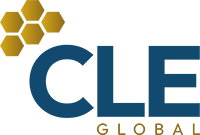Overview
The solution to the challenges faced by any group can be found in the signals that emerge in their dialogue or struggle. The skilled leader or facilitator’s role is to know how to follow these signals and assist organisations and communities to understand what is emerging and move forward based on new insight and understandings.
This series of five workshops is designed for leaders, facilitators, coaches, organisational development practitioners and consultants. It introduces the theory and practice of process-oriented facilitation including Worldwork and Deep Democracy, originally developed by Dr Arnold Mindell.
This program combines an introduction to Process Oriented leadership and facilitation with an opportunity for participants to investigate and receive input on case studies from their own organisations and consultancy practice.
Workshop 1 & 2: THE DYNAMICS OF CHANGE
Leaders, consultants and coaches develop the change capability of individuals, teams and divisions. At times their role is to disturb the status quo in order to effect change. At other times they may support staff to deal with the impacts of unexpected change. In an effort to maintain stability, individuals and organisations tend to resist change, marginalising information critical for their growth and survival.
In this workshop we will explore the concept of collective edges and cultural barriers to change. We will consider the ways organisations, teams, professions and individuals suppress certain characteristics in favour of a static and cohesive identity. Vitality, momentum and essential capabilities are lost as a consequence. A Process Oriented approach to leadership and facilitation reintegrates this lost potential.
Participants will develop methods for working with the dynamics of change in order to support organisations, teams and communities to find new ways of engaging with old problems.
Workshop 3: UNDERSTANDING GROUP AND TEAM DYNAMICS
A clear framework for understanding the complex and often confusing interaction between diverse interests in organisations, teams and communities is critical for leaders and consultants alike.
This workshop explores group dynamics and introduces strategies for engaging and working with the diverse roles that exist in organisational, team or stakeholder groups.
Participants will master the art of deepening dialogue between parties with differing interests as a basis for shared understanding, decision making and consensus. Finally you will learn to follow a group’s communication signals in order to recognise the missing elements essential for change.
Workshop 4: DIVERSITY, RANK AND POWER
Effective leadership is dependent on our capacity to occupy the authority inherent in the leader or facilitator’s role. Failure to adopt the legitimate authority of our roles can create a leadership vacuum. Conversely poor use of power impedes communication, stifles innovation, leads to costly workplace conflict and high staff turnover.
The impact of rank and power on organisational and team dynamics is rarely discussed in leadership circles, and hence poorly understood. Yet the capacity to use power effectively is dependent on our understanding of the factors shaping our experience of power and that of our staff and colleagues. This workshop investigates the often hidden diversity individuals bring to organisational and community life.
Workshop 5: DESIGNING ORGANISATIONAL INTERVENTIONS
The Dance Between Vision, Issues, Workplace Relationships and Emotions
How can leaders, coaches and facilitators work with multiple dimensions of organisational and community life, including guiding visions, operational challenges, emotional and relationship dimensions? Failure to address any of these dimensions causes change initiatives, dialogue and consultation to stagnate – leading to organisational inertia, frustration and hopelessness.
In this final workshop participants will integrate their learning and refine their application of a process oriented approach to leadership and facilitation.
A range of scenarios from organisational and community contexts will be considered. Participants will design and road-test interventions and strategies for addressing common challenges.
